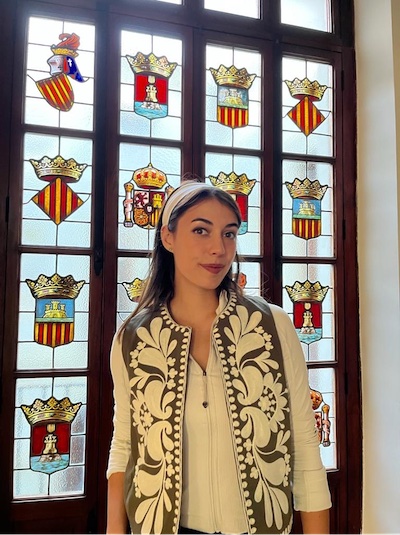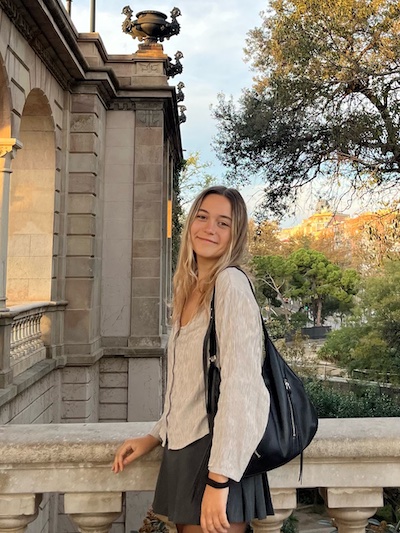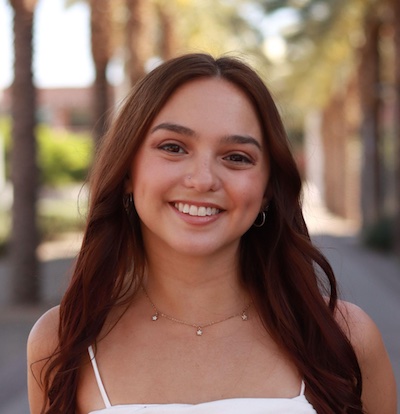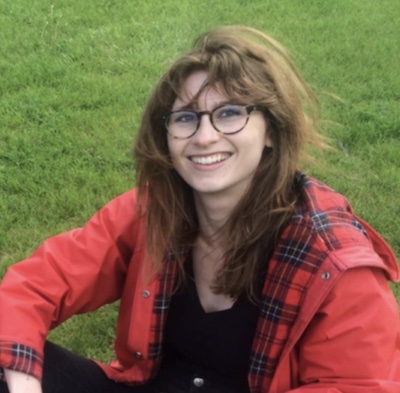By Rachel Hess
Many students may find themselves pondering the direction their lives will take in the days and weeks immediately after graduation. Anxious about making the right career move or not quite ready to commit to life behind a desk or pursuing a graduate degree, they might opt for a third way—an enriching experiential learning program in which they can travel, explore a new language and culture, and expand their horizons before entering the workforce or another field. The North American Language and Culture Assistants Program (NALCAP) is just one way to achieve this goal.
NALCAP is a public diplomacy program between the United States and Spain, which is intended to deepen cultural ties between the two countries and foster educational development for both Spanish and American citizens. American graduates serve as English language assistants and cultural ambassadors in elementary and secondary schools in Spain to expose Spanish students to a native English speaker, help students develop conversation skills, and teach them about American culture and traditions. Americans are placed all over Spain for an entire school year, and they are offered the opportunity to immerse themselves in the language, culture, and traditions, in order to develop both personally and professionally.
Several Phi Beta Kappa members currently participating in NALCAP highly recommended the program, which has allowed them to continue their goals of lifelong learning and development, and specifically acknowledge the importance of liberal arts and liberal learning over one’s whole life. The idea of liberal learning is paramount for understanding other cultures, enriching lives, and living in an interconnected, multifaceted world. Many of the interviewees discussed the value of language learning, not only as the cognitive benefits gained from speaking another language and career opportunities abroad and domestically, but also the ability to connect, communicate, understand cultural identity and heritage, think, process, and analyze in new, constructive ways, and the fact that language ability is a commodity that can build bridges and deconstruct barriers. Through language one can understand unique ideas and customs and use language as a tool for expression. The interviewees also asserted the value of the challenges of living and working abroad with regards to their confidence and professional skills development. It can be very challenging to step out of one’s comfort zone, move somewhere entirely new, in an unfamiliar culture and language, and learn to adapt; however, immersing oneself in the culture and language has developed their senses of flexibility and adaptability, skills, and language and cultural understanding.
Claire Nelson (ΦBK, Oregon State University), Miriam Klahr (ΦBK, Scripps College), Maiya Kohlenberg (ΦBK, Arizona State University), and Katherine Steen (ΦBK, University of Michigan) indicated their dreams of traveling and living abroad, and cited their liberal arts education as an intrinsic value and factor pushing them to both study abroad and also expose themselves to new ideas, people, challenges, and cultures in order to form connections, broaden their horizons, and understand the world around them.
Steen has had experience with a variety of cultural immersion programs, such as Fulbright and the Japan Exchange and Teaching (JET) Program, and has found many like-minded individuals that continue pushing her to live and teach abroad, “I think any program that allows you to teach abroad provides numerous benefits and amazing opportunities for intercultural exchange with students, teachers, and locals,” she said.
Klahr mentioned that her interdisciplinary education enabled her to teach English to adults in Spain by engaging with their specific interests and viewpoints and prepared her to have nuanced conversations in Spanish. All of the interviewees explained that their immersion in Spain and the Spanish language, albeit difficult at times, helped them adjust to the Spanish lifestyle and bureaucracy, and even improve their language capabilities. While it can be intimidating to navigate everything in a second language,
Kohlenberg emphasized that she loves interacting with the people, working in a local environment, and experiencing a Spanish lifestyle that she would not necessarily have the opportunity to experience just through traveling. One of her most important pieces of advice was “don’t be discouraged when it isn’t easy at first.”
By living as a local, Klahr discussed how she has been able to challenge assumptions cultivated by her native language, question how she thinks in the English language, and reflect on her perceptions of the world, while also “learning new expressions in Spanish that don’t have a direct translation,” she added. Nelson also noted that she is now more appreciative of the differences in lifestyle and culture and has incorporated new ways of living in her daily routine from her time in Spain. “I have learned more Spanish during these two years in NALCAP than I have in all of my time in school,” Nelson said. “I feel more confident and connected to others.” Kohlenberg noted the importance of keeping an open mind and acknowledging differing views, which can be understood through intertwined culture, language, and values.
Each person interviewed also underscored that one does not need to have teaching experience to participate in the program, and they love practicing teaching as a skill, while learning about Spanish culture and life directly from their students. “NALCAP is a phenomenal way to experience living in a foreign country like Spain but with a monthly stipend and a part-time job,” Nelson said. She has loved her experience so much that she did the program for another year, and commented that people can participate for up to five years, which has allowed her to meet locals and other language assistants, travel around Europe, and join activities. The women highlighted one major benefit as the ability to explore while they are young, while simultaneously developing themselves personally and professionally to succeed in their future careers. Klahr was very grateful for the additional time to think about her future before applying to a Master’s program or full-time job.
Nelson gave this parting advice: “Do it, and do it now. You have nothing to lose, and it will create lifelong memories and connections. I have heard more and more people tell me they regret not traveling and living abroad when they were young. But there is no cut off to doing NALCAP, whether you’re 18 or 35.” Steen has also loved her experience in Spain that she has been living there for over five years, and has done multiple intercultural exchange programs, and she said, “My gains from NALCAP are innumerable. This experience has fundamentally changed my life. My time living in Spain has really helped me discover who I am as an adult.”
Nelson concluded that she was honored to be inducted into Phi Beta Kappa, as a program of intellectuals, and enjoys following the organization and her fellow liberal arts colleagues closely.




Rachel Hess is a recent graduate of Barrett, the Honors College at Arizona State University, with a degree in political science and Spanish and four certificates in human rights; international studies; peace, religion, and conflict; and political entrepreneurship. She was inducted into Phi Beta Kappa there in April 2022. Arizona State University is home to the Beta of Arizona chapter of Phi Beta Kappa.
Photo at top: Barcelona Street Life. Photo by Craig Sunter, Manchester, UK.




